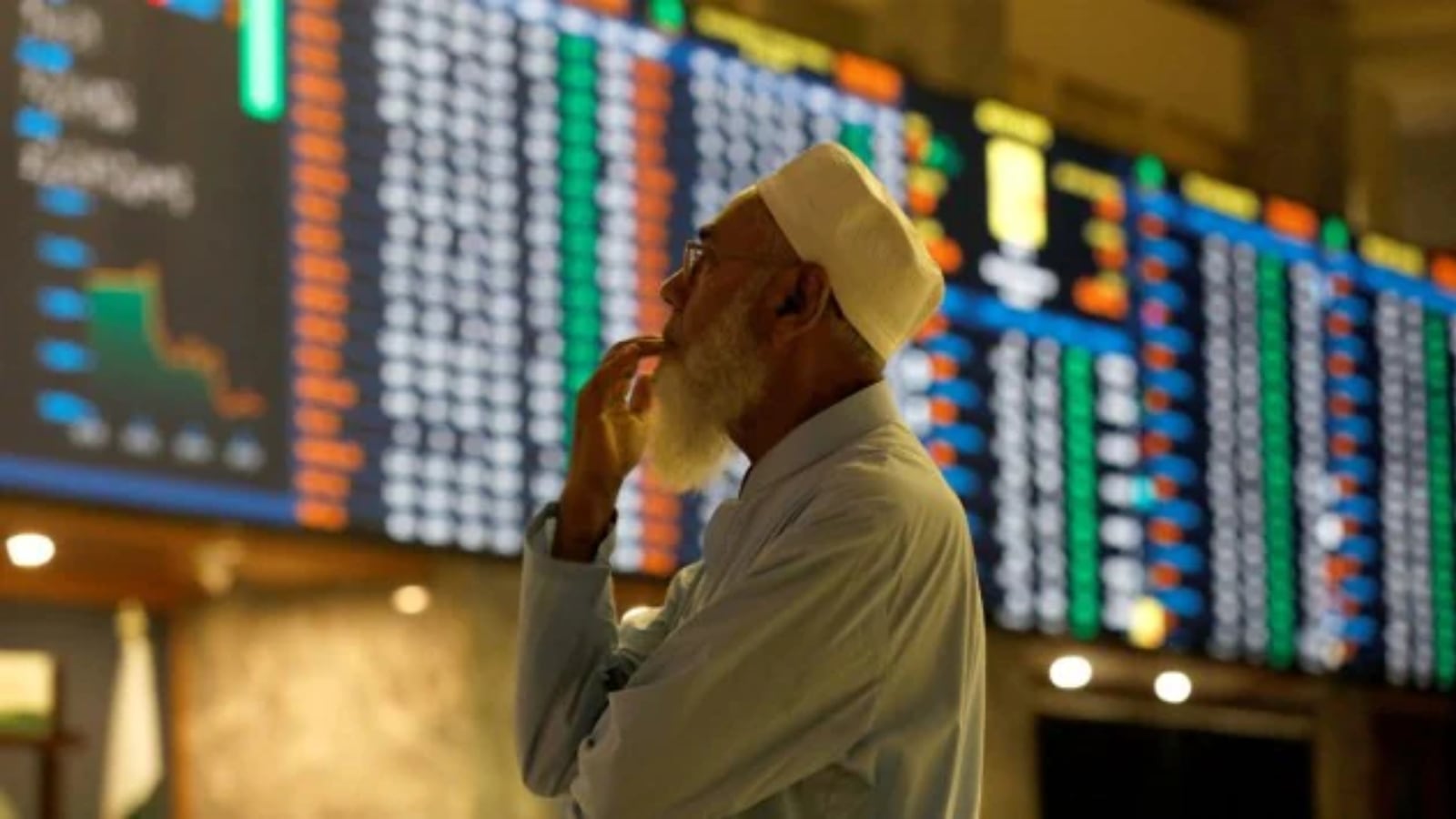The Pakistan Stock Exchange’s flagship KSE100 index on Wednesday plunged 3,559 points to close 3.3 per cent lower at 1,10,009 after an Indian strike on terror camps in Pakistan-occupied Kashmir (PoK).
The KSE100 index plunged 6,560.82 points, or 5.78 per cent to 107,007.68 at market opening on Wednesday. Pakistan-based brokerage Topline Securities said Pakistan’s stock market has lost 4.1 per cent valye in 9 trading sessions owing to uncertainty over a potential attack by India.
The KSE 100 closed in red on Tuesday even after a rate cut by the State Bank of Pakistan, according to a note posted by brokerage Arif Habib Ltd on social media platform X. The exchange closed 533.73 points lower on Tuesday.
The Indian armed forces launched ‘Operation Sindoor’ on terror infrastructure in Pakistan and Pakistan-occupied Jammu and Kashmir, the Defence Ministry said in an official statement on Wednesday. The terror attacks against India have been planned and carried out from these facilities, it added.
No Pakistani military facilities were targeted during the attack. “These steps come in the wake of the barbaric Pahalgam terrorist attack in which 25 Indians and 1 Nepali citizen were murdered,” the Defence Ministry stated.
Amid broader economic challenges, KSE100 remains in red
Investors remained bearish on Tuesday amid strong ongoing border tensions, Pakistani daily the Dawn reported, citing analysts. A Moody’s report cautioning that India-Pakistan tensions could affect Pakistan’s economic stability also weighed on the KSE100. An official from Pakistan’s Punjab Irrigation Department also alleged on Tuesday that India had blocked 90 per cent of the water flows from the Chenab river, the Dawn reported. Drawing on historic market trends for May, SIA Equities in a note on historic trends in the KSE100 stated bears have had an upper hand since 2010 in eight instances while the indices have been bullish in seven years.
Moody’s warns against impact of India-Pak tensions
An escalation in India-Pakistan tensions is expected to “weigh on Pakistan’s growth and hamper the government’s ongoing fiscal consolidation,” rating agency Moody’s said in its report.
Story continues below this ad
It could also affect Pakistan’s access to external financing while exerting pressure on its foreign exchange reserves, according to the report.
On May 9, the IMF’s executive board will meet Pakistani officials for a fresh credit line of $1.3 billion to Islamabad under the climate resilience loan programme. The IMF will also review the ongoing $7 billion bailout package extended to Pakistan.
State Bank of Pakistan cuts key rate
The State Bank of Pakistan, the neighbouring country’s central bank, slashed the key rate by 100 basis points to 11 per cent on Tuesday. While the KSE100 surged over 900 points in response to this development on Tuesday, the trend reversed soon and the key Pakistani index closed over 500 points lower.
Pakistan Business Council CEO Ehsan Malik said the quantum of rate cut by SBP was inadequate citing expanding trade deficit due to a rise in imports, the Dawn reported.
Story continues below this ad
Malik said trade uncertainty, geopolitical tensions, and pressure on the exchange rate were also reasons for urging the SBP to bring the key rate down to a single digit.
Pakistan’s industry was expecting a 500 bps rate cut to 7 per cent, said Atif Ikram Sheikh, President of the Federation of Pakistan Chambers of Commerce and Industry, the Dawn reported. The policy rate commanded a premium compared to the Consumer Price Index of inflation in Pakistan, which stood at 0.30 per cent in April, he added.
“Pakistani industries continue to suffer under unsustainably high borrowing costs,” said Karachi Chamber of Commerce and Industry president Muhammad Jawed Bilwani, while comparing SBP’s policy rate with neighbouring India’s (6 per cent) and that of Bangladesh (10 per cent) among other countries in the region, the Dawn reported.
How KSE100 responded to Pulwama, Uri
The terror attack on a CRPF contingent in Pulwama, Kashmir on February 14, 2019 in which 40 personnel were killed, resulted in a 2 per cent decline in the KSE100, according to Topline Securities. The losses were partially recovered as the KSE100 was down 1.40 per cent on February 26, 2019, when the Indian Air Force bombed Balakot, the brokerage said in its report. The KSE100 was up after the Indian armed forces’ response to the Uri terror attack on an Indian Army base in 2016, according to the report.


